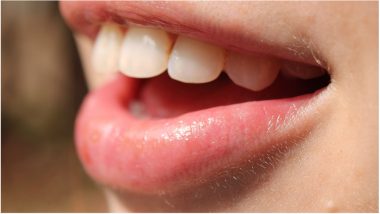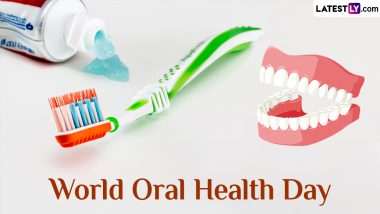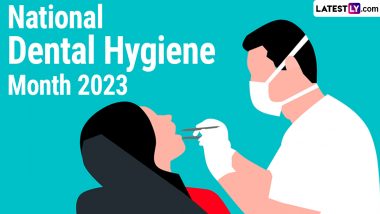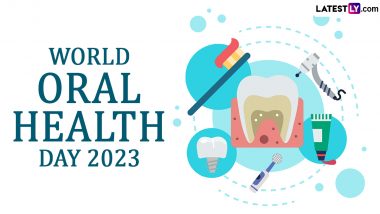Pregnancy calls for extra care for everything. Right from what you eat, how you sleep to your exercise routine. You make sure that you do everything right. But somehow, we always overlook and give less importance to our dental hygiene. Having good oral hygiene is beneficial for both you and your baby. World Oral Health Day is celebrated on March 20, and today is the right time for the pregnant mommies to pay attention to their teeth and gums, if you haven’t already. Below we explain to why oral health is so important and how you can protect your teeth from dental problems.
Effect of Oral Health on Pregnancy
There have been several studies that suggest a link between gum disease and premature, underweight births. Gum disease triggers increased levels of biological fluids that induce labour. Data also suggests that when gum disease worsens during pregnancy, there’s a higher risk of having a premature baby. It is highly advised to women who are considering pregnancy to visit their dentist and to treat any oral problems before becoming pregnant. Regular brushing and flossing, eating a balanced diet and visiting your dentist regularly will help reduce dental problems that accompany pregnancy.
Common Oral Problems During Pregnancy
Pregnancy Gingivitis: Hormonal changes during pregnancy can also affect your mouth. Pregnancy gingivitis is a condition where an inflammation in the gums can cause swelling and tenderness. There can be slight bleeding in your gums when you brush or floss. If left untreated, gingivitis can lead to serious forms of gum disease. Your dentist may recommend more frequent cleanings to prevent this.
Tooth Decay: Pregnant women are more prone to cavities for several reasons. Eating more carbohydrates than usual can cause decay. Also, morning sickness can increase the amount of acid your mouth is exposed to, which can eat away the outer covering of your tooth (enamel).
Pregnancy Tumours: Often during the second trimester, some women can have overgrowths of tissue that appear on the gums called pregnancy tumours. It is not cancerous but rather a swelling that happens most often between teeth. They may be related to excess plague. They bleed easily and have a red-looking appearance. They usually disappear after the baby is born, but if you are concerned request your dentist to remove it.
Dental Hygiene during pregnancy
- Brush your teeth at least twice a day fluoride toothpaste. If your gums are swollen and tender due to gingivitis, try switching to an extra soft toothbrush with a small head and brush as gently as possible.
- If you have morning sickness and brushing makes you gag, take it slow and figure out what works for you. Changing the flavour of your toothpaste may help. You can also try rinsing your mouth with a teaspoon of baking soda and water. This will help keep stomach acids from attacking your teeth and causing decay. Ask your dentist about an antimicrobial mouth rinse to help combat the increase of plaque.
- Eat a diet rich with calcium, protein, phosphorous, B12 and vitamin C to help keep gums healthy. Your baby’s teeth develop between the third and sixth months of pregnancy and eating well can help them form correctly.
- Avoid sugary snacks. Sweet cravings are common during pregnancy. Keep in mind that the more frequently you snack on sugary food items, the greater the chance of developing tooth decay. A healthy and balanced diet comprises dairy products, cheese and yogurt that are a good source of these essential minerals and are good for baby’s developing teeth, gums and bones.
Dentist Visits during pregnancy
Professional cleanings are essential when expecting to maintain healthy teeth and gums. During your visits to dentist, disclose any medications or prenatal vitamins that you are taking. You doctor may even suggest dental X-rays. These are safe during pregnancy. In fact, dental X-rays are an effective diagnostic tool that helps detect tooth damage and disease not otherwise visible during a regular dental exam. The mouth is the gateway to the body, an infection in the mouth can spread to other parts of the body, including the baby. The radiation produced during an X-ray won’t harm the mother or the baby because the technician routinely places a lead apron and thyroid collar to protect the abdomen and thyroid. Discuss all the issues that you are facing so that your dentist can attend those needs.
Try to make a dental appointment before getting pregnant. This way, your teeth and gums can be professionally cleaned and examined. Any oral health problems, if any, can be treated in advance of your pregnancy. Follow good oral hygiene practices to prevent or reduce the risk of any oral health problems. Keep smiling throughout your pregnancy by practising good dental care.
(The above story first appeared on LatestLY on Mar 20, 2018 03:47 PM IST. For more news and updates on politics, world, sports, entertainment and lifestyle, log on to our website latestly.com).













 Quickly
Quickly





















